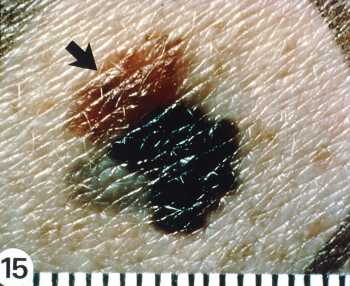
03 Nov Melanoma: Escalated Immunosuppression For Toxicity From Checkpoint Inhibitors May Impair Survival
MedicalResearch.com Interview with:
Olivier van Not
Scientific Bureau, Dutch Institute for Clinical Auditing
Leiden, the Netherlands
Department of Medical Oncology
University Medical Centre Utrecht
Utrecht, the Netherlands
MedicalResearch.com: What is the background for this study?
Response: The introduction of immune checkpoint inhibitors (ICIs) has significantly improved the survival of advanced melanoma patients. Treatment with these ICIs can lead to immune-related adverse events, also known as toxicity. This toxicity is graded from 1 (mild) to 5 (fatal) and examples of these toxicities are hepatitis and colitis.
Since these toxicities can be life threatening and become chronic, they require treatment with immunosuppressants such as corticosteroids or anti-TNF.
In a previous study of melanoma patients treated with different types of immune checkpoint inhibitors [Verheijden et al, Clin Cancer Research 2020] we found survival to be better for patients experiencing immune-related toxicity, which is in line with many other studies in several cancer types and a recent meta-analysis.
MedicalResearch.com: What are the main findings?
Response: However, we found patients whose toxicity was treated with steroids + anti-TNF to have worse survival outcomes than patients whose toxicity was managed with steroids only.
This article sparked a lot of discussion regarding the optimal treatment of severe (grade 3 or higher) toxicity following ICI-treatment. One of the remaining questions was whether this potentially harmful effect could be attributed to anti-TNF specifically or regarded as the result of escalated and long-term immunosuppression.
In the current paper we included 350 patients treated with first-line ipilimumab+nivolumab experiencing severe toxicity. We analyzed how toxicity management affected survival in this group of patients.
We stratified patients according to their management of toxicity: steroids alone versus steroids with any second-line immunosuppressants. The latter group was further divided into patients receiving steroids + anti-TNF and patients receiving steroids + other second-line immunosuppressants excluding anti-TNF.
We found that patients receiving second-line immunosuppression for toxicity had impaired progression-free survival, overall survival, and melanoma-specific survival compared to patients treated with steroids alone.
We did not find significant survival differences between patients receiving steroids + anti-TNF and patients receiving steroids + other second-line immunosuppressants other than anti-TNF.
MedicalResearch.com: What should readers take away from your report?
Response: Escalated immunosuppression for toxicity appears to have a potential detrimental effect on checkpoint inhibitor effectiveness. Until recently we assumed that there was no harm in aggressive immune checkpoint inhibitors toxicity management.
We hope that readers use our data to change their view on that and might be a bit more careful using immunosuppression for checkpoint inhibitor toxicity, not giving patients more immunosuppression than needed.
MedicalResearch.com: What recommendations do you have for future research as a results of this study?
Response: Unfortunately, our current study did not include data on steroid dosage and duration. We are now conducting a follow-up study including this additional data, in order to assess the differential effects of high-dosage steroids that are simultaneously given on our findings.
These findings are also important for clinical practice, to know whether it’s the dosage or duration of steroids, or for example the combination steroids and second-line immunosuppression.
The disclosures can be found in the manuscript.
Citation:
van Not OJ, Verheijden RJ, van den Eertwegh AJM, et al. Association of Immune-Related Adverse Event Management With Survival in Patients With Advanced Melanoma. JAMA Oncol. Published online October 27, 2022. doi:10.1001/jamaoncol.2022.5041
https://jamanetwork.com/journals/jamaoncology/article-abstract/2797850
The information on MedicalResearch.com is provided for educational purposes only, and is in no way intended to diagnose, cure, or treat any medical or other condition. Always seek the advice of your physician or other qualified health and ask your doctor any questions you may have regarding a medical condition. In addition to all other limitations and disclaimers in this agreement, service provider and its third party providers disclaim any liability or loss in connection with the content provided on this website.
Last Updated on November 3, 2022 by Marie Benz MD FAAD
